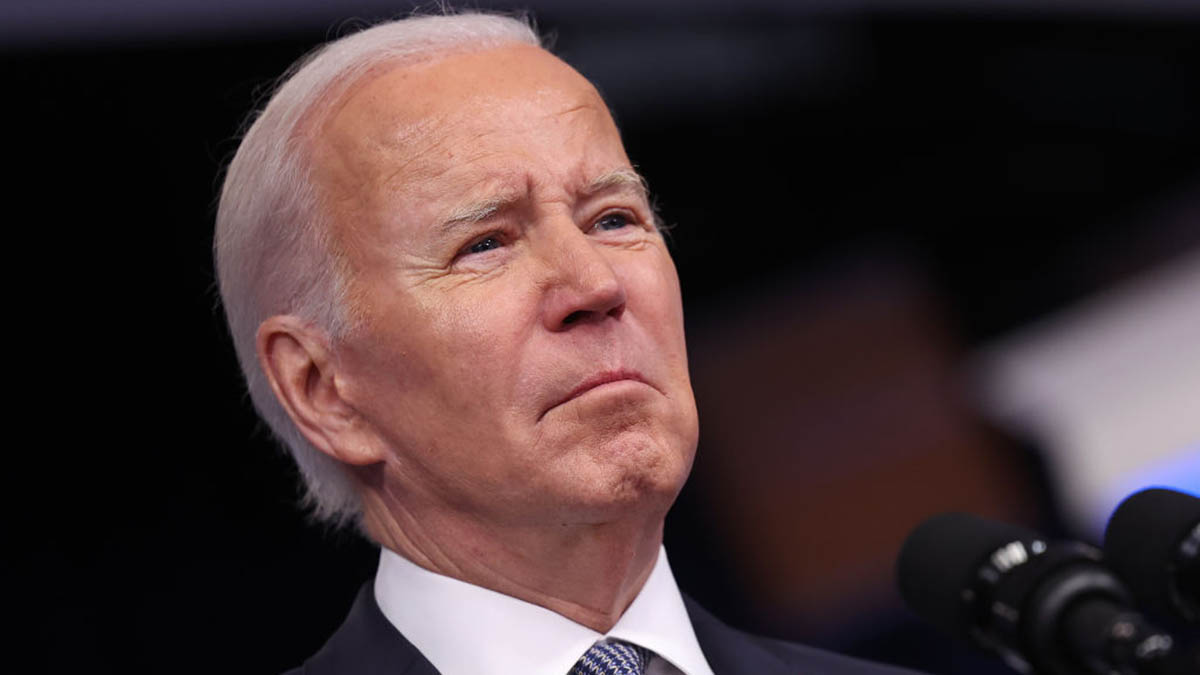Illinois Coronavirus Updates: Biden Announcement, Long COVID Effects - NBC Chicago | By The Perfect Enemy

The national response to COVID could soon be changing as President Joe Biden made a big announcement.
Here’s what else you need to know about the coronavirus pandemic across Illinois today.
President Biden to End COVID-19 Emergencies on May 11
President Joe Biden informed Congress on Monday that he will end the twin national emergencies for addressing COVID-19 on May 11, as most of the world has returned closer to normalcy nearly three years after they were first declared.
The move to end the national emergency and public health emergency declarations would formally restructure the federal coronavirus response to treat the virus as an endemic threat to public health that can be managed through agencies’ normal authorities.
Read more here.
Long COVID Has an ‘Underappreciated’ Role in Labor Shortage, Study Finds
Long COVID is keeping people out of work and may reduce on-the-job productivity for others, contributing to a labor shortage and weighing on the U.S. economy at large, according to a new study.
Long COVID— also known as long-haul COVID, post-COVID or post-acute COVID syndrome — is a chronic illness that results from a Covid-19 infection. Its potential symptoms number in the hundreds and, for some, can be debilitating and persist for years.
Read more here.
WHO Says COVID Remains a Global Emergency But Pandemic Could Near Its End in 2023
The World Health Organization on Monday said COVID-19 remains an global health emergency as the world enters the fourth year of the pandemic.
But WHO Director-General Tedros Adhanom Ghebreyesus said he was hopeful that the world will transition out of the emergency phase of the pandemic this year.
Read more here.
CDC Urges People With Weak Immune Systems to Take Extra Precautions After COVID Subvariants Knock Out Evusheld
The Centers for Disease Control and Prevention on Friday urged people with weak immune systems to take extra precautions to avoid COVID after the dominant omicron subvariants knocked out a key antibody treatment.
These precautions include wearing a high quality mask and social distancing when it’s not possible to avoid crowded indoor spaces, according to the CDC.
Read more here.
Illinois COVID Community Levels Decline for Another Week as ‘Kraken’ Variant Concerns Remain
Community levels have improved within the past two weeks across Illinois, according to the latest Centers for Disease Control and Prevention data, while health officials continue to closely monitor the spread of the more contagious “Kraken” variant.
According to CDC data, a total of 20 counties were at “medium” COVID status Friday, compared to 28 counties listed at an elevated status of either “medium” or “high” a week prior.
All of the counties in the Chicago area are listed in the “low” category, while there are clusters of counties at “medium” status listed in the eastern, northwestern and southern portions of the state.
Read more here.
FDA Withdraws COVID Antibody Treatment Evusheld Because It’s Not Effective Against 93% of Subvariants
The Food and Drug Administration on Thursday pulled its authorization for AstraZeneca‘s Evusheld, an antibody injection that people with weak immune systems relied on for additional protection against COVID-19.
The FDA pulled Evusheld from the market because it is not effective against more than 90% of the COVID subvariants that are currently circulating in the U.S.
Read more here.
FDA’s Advisers Back Plan For Once-a-Year COVID Shots for Most Americans
The U.S. is poised to make COVID-19 vaccinations more like a yearly flu shot, a major shift in strategy despite a long list of questions about how to best protect against a still rapidly mutating virus.
The Food and Drug Administration asked its scientific advisers Thursday to help lay the groundwork for switching to once-a-year boosters for most Americans — and how and when to periodically update the shots’ recipe.
Read more here.
Omicron Booster Shots Provide Some Protection Against Mild Illness From Covid XBB Subvariants, CDC Says
Pfizer‘s and Moderna‘s omicron boosters reduced the risk of mild illness from the XBB family of subvariants compared to people who did not receive the shot, according to a study from the Centers for Disease Control and Prevention published Wednesday.
The CDC study provides the first estimate of the omicron shots’ real-world effectiveness against the XBB family of subvariants. Some scientists have warned the XBB subvariants could cause another Covid wave because they are so good at evading the antibodies that block infections.
Read more here.
Which Symptoms Are Associated With New COVID Variant XBB.1.5 as Midwest Cases Rise?
With the new and highly contagious XBB.1.5 COVID variant now making up nearly 50% of cases nationwide, and as cases in the Midwest rise, which symptoms should you be watching for?
The new and highly contagious COVID variant dubbed XBB.1.5 nearly doubled its prevalence in the Midwest over the last week and experts say that growth will likely continue in the weeks ahead.
The variant now makes up 49.1% of cases in the U.S. and more than 23% of cases in the Midwest, climbing in both metrics from 43% and roughly 14% the week prior, according to estimates from the Centers for Disease Control and Prevention.
Read more here.
#Coronavirus, #Economy, #PublicHealth
Published on The Perfect Enemy at https://bit.ly/3jlT1nQ.
Comments
Post a Comment
Comments are moderated.